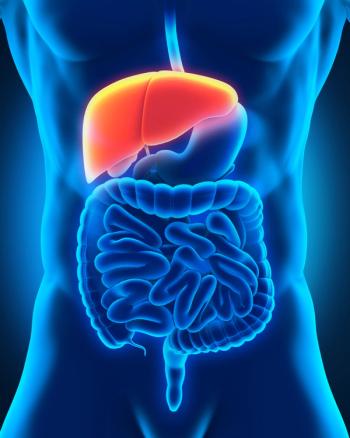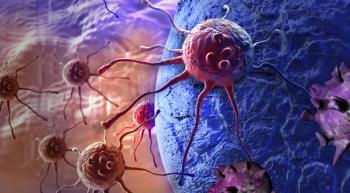
After surviving cancer and the many bad days that come with a diagnosis, voice actor Rob Paulsen noted that he had a newfound sense of empathy that helped him out of some of his darkest days.

Brielle Benyon, Assistant Managing Editor for CURE®, has been with MJH Life Sciences since 2016. She has served as an editor on both CURE and its sister publication, Oncology Nursing News. Brielle is a graduate from The College of New Jersey. Outside of work, she enjoys spending time with family and friends, CrossFit and wishing she had the grace and confidence of her toddler-aged daughter.
Follow Brielle on Twitter @Brielle_Benyon.

After surviving cancer and the many bad days that come with a diagnosis, voice actor Rob Paulsen noted that he had a newfound sense of empathy that helped him out of some of his darkest days.

From liver cancer survivor planning to run the upcoming Boston Marathon with his organ donor to a common HIV drug showing promise in treating colorectal cancer, here’s what’s happening in the cancer space this week.

Watch Dr. Cesar Rodriguez, of the Multiple Myeloma Program at the Ichan School of Medicine at Mount Sinai, discuss upcoming FDA approvals in the space, during the CURE Educated Patient Multiple Myeloma Summit.

A phase 2 trial will investigate LTX-315 in patients with basal cell carcinoma, the most common form of skin cancer.

The presence of cancer in the lymph nodes may not be the strongest indicator of the need for adjuvant chemotherapy in older women with breast cancer, according to recent study results.

The first patient was dosed in an early-phase trial evaluating the investigational cell therapy DeTIL-0255 for the treatment of advanced ovarian, cervical and endometrial cancer.

The COVID-19 pandemic brought on a huge surge in the use of telemedicine for cancer care, but now as the pandemic is slowing down, an expert said that there are certain times when telemedicine will do, while other situations warrant an in-person visit with the doctor.

An upcoming phase 2 study will explore if the transdermal (through the skin) delivery of a drug commonly used to treat nausea and vomiting will result in no nausea, no vomiting and no use of rescue medicines in patients with cancer receiving chemotherapy.

From New York Yankees outfielder Aaron Judge giving a brain cancer survivor custom baseball cards to Tom Parker’s brain cancer death and Good Morning America’s Robin Roberts opening up about her cancer experience, here’s what is happening in the cancer space this week.

Patients with colorectal cancer that has spread to the liver tend to have poor outcomes and are typically not candidates to receive liver transplants from deceased donors. However, results from a small study on transplanting livers from live-donors could "change this paradigm," an expert said.

Performing genetic testing in every patient diagnosed with colon cancer, and not just those considered high-risk, could identify that person's risk of developing another cancer later in life.

Cancer survivors may often struggle with talking about their fear of recurrence with loved ones, which is why one expert recommends they seek solace in support groups.

When lovers of “Pinky and the Brain,” “Teenage Mutant Ninja Turtles” and other cartoons gathered in voice actor Rob Paulsen’s hospital room, he took particular notice of one exuberant woman with cancer who was extroverted and kind, despite not having long to live.

A recently FDA-approved drug offers patients with metastatic castration-resistant prostate cancer a newer treatment that improves survival, but is not curative of the disease, which means that more research is needed, according to an expert.

It is essential that patients and providers discuss appropriate options for maintenance therapy after ovarian cancer, one expert explained.

The trial will be testing TARA-002 in patients with non-muscle invasive bladder cancer with high-grade carcinoma in situ and high-grade papillary tumors.

From Pfizer issuing a voluntary recall of three blood pressure drugs due to a high level of a cancer-causing chemical to “Today Show” co-ancho Hoda Kotb discussing her struggles with fertility after receiving a diagnosis of breast cancer, here’s what’s happening in the cancer space this week.

MRX0518 plus Keytruda led to a clinical benefit in four out of 16 evaluable patients with renal cell carcinoma. The drug duo will continue to be studied for multiple types of solid tumors.

The Food and Drug Administration plans on reviewing multiple new cancer therapies this spring.

Over the last 20 years, head and neck cancer treatment moved away from aggressive treatments for all patients to a more personalized approach — improving both outcomes and quality of life for patients with the disease.

Madeleine Albright, the first female secretary of state, died of cancer earlier today. She was 84 years old.

From two celebrity deaths due to cancer to leading American cancer organizations coming together to help patients with cancer fleeing Ukraine, here’s what’s happening in the cancer space this week.

The combination of Cabometyx and Tecentriq failed to improve overall survival in patients with advanced hepatocellular carcinoma, the most common type of primary liver cancer, compared with single-agent Tecentriq or Nexavar.

As the average price of regular-grade gas in the United States speeds past $4.30 a gallon, many patients with cancer may be wondering how they can afford to get to and from cancer treatments. Luckily, there’s assistance to make travel less expensive.

Unlike stem cell transplant, which has strict eligibility criteria, the majority of patients with blood cancer may be able to receive CAR-T cell therapy, regardless of other comorbidities, explained an expert.

The pain and numbness from chemotherapy-induced peripheral neuropathy — commonly referred to as CIPN — can severely impact the lives of patients with cancer, though there are ways that patients can mitigate the intensity or live better with the condition.

The recent FDA approval of the CAR-T cell therapy Carvykti represents a life-changing advancement for patients with multiple myeloma whose disease progressed after countless other treatments, according to an expert.

Despite several FDA drug approvals over the past few years in the cholangiocarcinoma space, many patients are ineligible for these treatments as a first option, signaling a significant unmet need.

The time patients with resected melanoma, a type of skin cancer, lived without their disease spreading to distant organs improved drastically after treatment with Keytruda.

Patients treated with Lutetium-177 PSMA-617 tended to experience improvements in quality of life related to the aches and pains that can come from bone metastases.